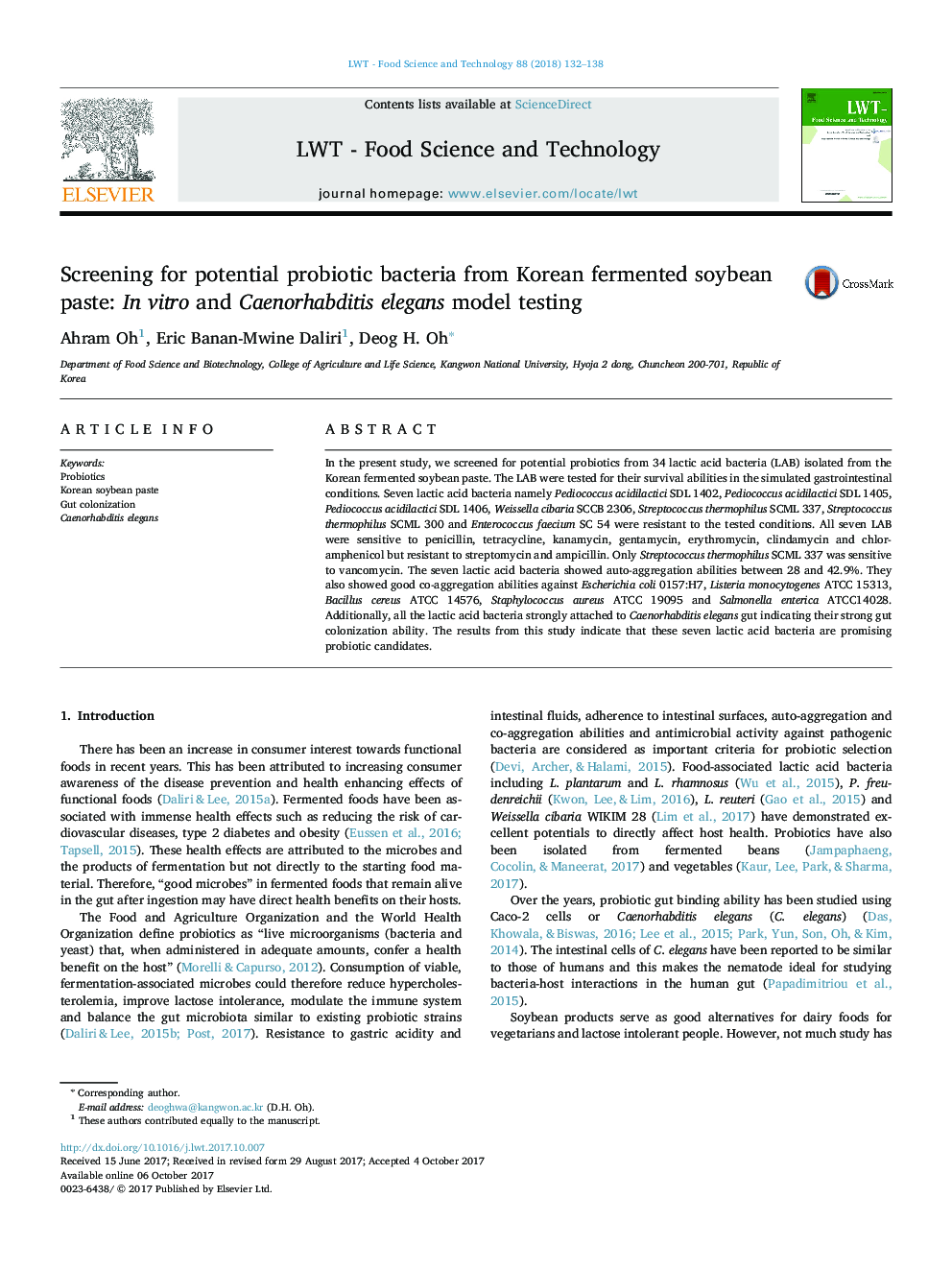| Article ID | Journal | Published Year | Pages | File Type |
|---|---|---|---|---|
| 5768364 | LWT - Food Science and Technology | 2018 | 7 Pages |
â¢Lactic acid bacteria (LAB) were obtained from Korean fermented soybean paste.â¢They showed high survival abilities in simulated gastrointestinal conditions.â¢They were sensitive to several antibiotics.â¢The LAB showed strong auto-aggregation and co-aggregation abilities.â¢They showed low hydrophobicities yet strong attachment to C. elegans gut.
In the present study, we screened for potential probiotics from 34 lactic acid bacteria (LAB) isolated from the Korean fermented soybean paste. The LAB were tested for their survival abilities in the simulated gastrointestinal conditions. Seven lactic acid bacteria namely Pediococcus acidilactici SDL 1402, Pediococcus acidilactici SDL 1405, Pediococcus acidilactici SDL 1406, Weissella cibaria SCCB 2306, Streptococcus thermophilus SCML 337, Streptococcus thermophilus SCML 300 and Enterococcus faecium SC 54 were resistant to the tested conditions. All seven LAB were sensitive to penicillin, tetracycline, kanamycin, gentamycin, erythromycin, clindamycin and chloramphenicol but resistant to streptomycin and ampicillin. Only Streptococcus thermophilus SCML 337 was sensitive to vancomycin. The seven lactic acid bacteria showed auto-aggregation abilities between 28 and 42.9%. They also showed good co-aggregation abilities against Escherichia coli 0157:H7, Listeria monocytogenes ATCC 15313, Bacillus cereus ATCC 14576, Staphylococcus aureus ATCC 19095 and Salmonella enterica ATCC14028. Additionally, all the lactic acid bacteria strongly attached to Caenorhabditis elegans gut indicating their strong gut colonization ability. The results from this study indicate that these seven lactic acid bacteria are promising probiotic candidates.
